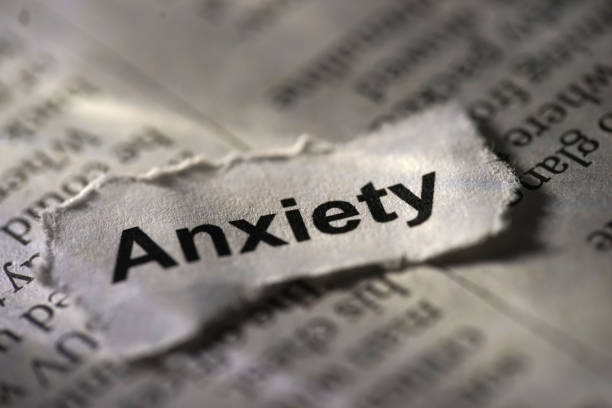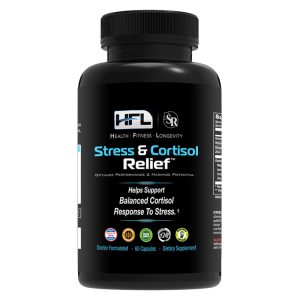Table of Contents
Toggle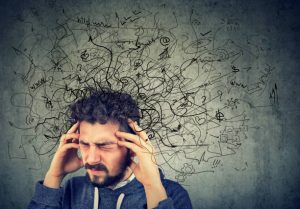
Anxiety is a complex disorder that can affect many parts of your body. It’s classified as a type of anxiety disorder, and it affects millions of people around the world. If you experience any physical symptoms of anxiety, take them seriously—they’re not just an emotional response to stress or worry! Here’s what some common physical symptoms might look like:
Shortness of breath
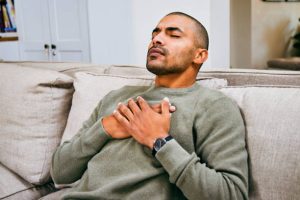
Anxiety can cause shortness of breath because it affects the way the body reacts to stress. The brain stem controls automatic functions like breathing and heart rate and is sensitive to stress hormones like adrenaline and cortisol.
When these hormones are released, it can cause difficulty in breathing and increased anxiety. To help reduce anxiety, try practicing simple breathing exercises. When inhaling deeply through your nose and mouth, can help calm the nervous system and make breathing more comfortable.
Additionally, focusing on your breath can help you to clear your mind and bring your attention to the present moment, which can help manage anxiety.
Chest tightness or pain
It is not uncommon for people with anxiety to experience chest tightness and pain. These symptoms can be caused by panic attacks or anxiety disorders, and they can be scary and uncomfortable.
It is important to remember that chest pain can also be a sign of heart disease, so it is important to let your doctor know if you are experiencing chest pain and to get it checked out as soon as possible. It is also a good idea to take care of your overall physical health by eating a healthy diet, exercising regularly, and getting enough sleep, as this can help to reduce anxiety and the risk of other health problems.
A rapid heartbeat
A rapid heartbeat is a symptom of anxiety. It can be caused by several factors, including:
- Stress (for example, when you have to give a speech)
- Anxiety (when you’re worried about something)
- Fear and panic attacks that cause your heart to race uncontrollably at the thought of them happening again. You may also experience this if you’ve had one recently or if your blood pressure suddenly increases during an attack—but not everyone with these experiences will have an anxiety disorder!
If you notice any physical changes in your body and can’t figure out what’s going on with it, talk to someone about it so they can help figure out why it’s happening and how they can help manage those symptoms until they go away naturally again
Dizziness
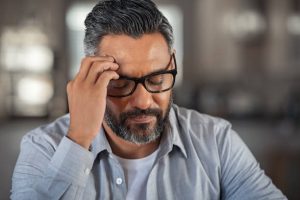
To manage dizziness caused by anxiety, it is important to identify and address the underlying cause of the anxiety. This may involve seeking the guidance of a mental health professional, practicing relaxation techniques, or making lifestyle changes. It is also important to see a healthcare professional if the dizziness persists, as it could be a symptom of a more serious underlying medical condition.
Flush skin
Anxiety often causes a “flush” or flushed skin, which occurs due to the release of adrenaline in the body and increased blood flow to the face. Sometimes this can also result in redness and swelling of the facial area.
Another symptom that may accompany this physical indicator of anxiety is sweating more than usual—this symptom can be especially noticeable when you’re under stress or in hot temperatures outside!
Tense muscles
- Tense muscles: If you feel like your muscles are tense, they may be shaking or knotted up. You may also notice that your hands and feet are tingly or numb.
- How to relax your muscles: The first step is to breathe slowly and deeply so that the nerves in the body can calm down. This will help reduce stress and anxiety by relaxing the mind and body at once. Once this happens, try stretching out each muscle group in turn until it feels loose again (you don’t have to do this all at once).
- Tell-tale signs of tightness: If you notice any of these symptoms when trying to relax, chances are good that some of those areas need extra attention!
Dry mouth
A dry mouth is a common symptom of anxiety, and it’s often caused by the body’s response to stress. While there are many ways to get rid of dry mouth, these are some of the most common:
- Drink water regularly. Drink at least 16 ounces (2 cups) of water per hour as a preventive measure against dehydration. If you’re already dehydrated, drink more until your lips feel tacky or sticky. Eat foods with high moisture content to prevent saliva suppression due to low sodium levels in your diet.
Fidgeting or restlessness
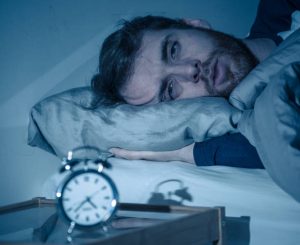
Fidgeting or restlessness is often related to anxiety. It can be a way to release stress, distract from thoughts, calm down, and focus on something else. It can also be an indicator of anxiety in social situations.
Nausea and stomach upset
Nausea and stomach upset are common symptoms of anxiety. It can be caused by stress, fear, or worry. It can also be a sign that you are having a panic attack. If you have persistent nausea, it’s best to contact your doctor.
Everyone experiences anxiety in their own way
It’s important to remember that physical symptoms are not your fault if you are experiencing any of them. Often, we don’t pay attention to our bodies until something happens and we become aware of how we feel.
If you have been informed about a health issue or problem with your body and you feel anxious, consider seeking reassurance and support from someone close to you. Alternatively, you can seek help from a professional such as a therapist or psychologist specializing in anxiety disorders. They can assist you in finding treatment options that meet your specific needs and concerns.

Conclusion
I wrote an article on how anxiety affects the body, make sure to check it out! There are many reasons why some people experience anxiety in their lives and how this can be treated. It’s important to recognize the physical symptoms of anxiety and address the underlying problem.
Frequently Asked Questions
Q: What is anxiety?
A: Anxiety is a complex disorder that can affect many parts of your body. It’s classified as a type of anxiety disorder, and it affects millions of people around the world.
Q: What are some common physical symptoms of anxiety?
A: Some common physical symptoms of anxiety include shortness of breath, chest tightness or pain, a rapid heartbeat, dizziness, flushed skin, tense muscles, dry mouth, and difficulty swallowing.
Q: How can I manage anxiety-related dizziness?
A: To manage dizziness caused by anxiety, it is important to identify and address the underlying cause of the anxiety. This may involve seeking the guidance of a mental health professional, practicing relaxation techniques, or making lifestyle changes. It is also important to see a healthcare professional if the dizziness persists, as it could be a symptom of a more serious underlying medical condition.
Q: What can cause a rapid heartbeat?
A: A rapid heartbeat can be caused by stress, anxiety, fear, and panic attacks. It is important to see a healthcare professional if you are experiencing a rapid heartbeat, as it could be a sign of a more serious medical condition.
Q: How can I relax my muscles when they are tense?
A: To relax tense muscles, try breathing slowly and deeply to calm the nerves in the body. You can also try stretching out each muscle group until it feels loose. If you are unable to relax your muscles, it may be helpful to seek the guidance of a healthcare professional or a mental health professional.

